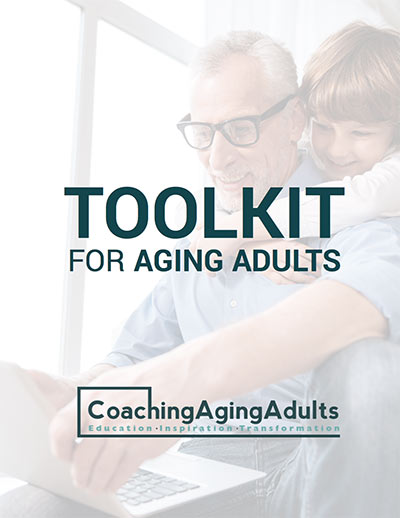As we journey through life, we all hope to age gracefully and enjoy the process of growing older. Aging is a natural part of life that brings challenges but also opportunities for personal growth and happiness. As a therapist and aging coach, I have witnessed firsthand the transformative power of gratitude in promoting positive aging. In this blog post, we will explore the role of gratitude in the aging process and discuss practical ways to cultivate gratitude in our lives.
Understanding Positive Aging
Before we delve into the role of gratitude, let’s first understand what positive aging entails. Positive aging goes beyond the absence of illness or decline; it emphasizes a holistic approach to well-being that encompasses physical, emotional, and social aspects of our lives. It involves adopting a positive mindset, embracing new experiences, fostering meaningful connections, and maintaining a sense of purpose and fulfillment.
Gratitude: A Gateway to Positive Aging
Gratitude is a powerful practice that can significantly enhance our well-being as we age. It involves acknowledging and appreciating the positive aspects of our lives, both big and small. Research has consistently shown the numerous benefits of gratitude, including improved physical health, increased happiness, reduced stress, and enhanced relationships.
Promoting Physical Health
Gratitude has a profound impact on our physical health, especially as we age. Studies have found that individuals who practice gratitude regularly experience better sleep, lower blood pressure, and improved immune function. Grateful individuals also tend to engage in healthier lifestyle behaviors, such as regular exercise and balanced nutrition, leading to better overall health and vitality.
Enhancing Emotional Well-being
As we navigate the aging process, it’s normal to experience a range of emotions, including grief, loss, and a sense of vulnerability. However, cultivating gratitude can help us maintain a positive outlook and emotional well-being. Research suggests that gratitude reduces symptoms of depression and anxiety, increases self-esteem, and enhances overall life satisfaction. It allows us to shift our focus from what we may have lost to what we still have, fostering a sense of contentment and resilience.
Reducing Stress
Stress can have a detrimental impact on our physical and emotional health, and it becomes increasingly important to manage stress effectively as we age. Gratitude serves as a potent stress-reduction tool, helping us shift our attention away from worries and anxieties. By focusing on the positives in our lives, we can reframe our thoughts and find a greater sense of peace and calmness. Regular gratitude practice has been shown to lower stress levels and improve coping strategies, allowing us to navigate life’s challenges with greater ease.
Fostering Meaningful Relationships
Strong, meaningful relationships are crucial for positive aging. Gratitude plays a pivotal role in nurturing these connections. When we express gratitude to others, it strengthens our relationships, deepens our social bonds, and fosters a sense of belonging. Moreover, gratitude encourages acts of kindness and generosity, which further enhances our interpersonal connections. As we grow older, it becomes more crucial to have a supportive network of family, friends, and community. In this regard, expressing gratitude can be an effective way to build and maintain these relationships. Gratitude can truly work wonders in strengthening our bonds with loved ones and those around us. Therefore, it is important to cultivate a spirit of gratitude to enhance the quality of our social connections as we age.
Cultivating Gratitude: Practical Strategies
Now that we understand the importance of gratitude in promoting positive aging, let’s explore some practical strategies to cultivate gratitude in our daily lives:
- Keep a Gratitude Journal: Set aside a few minutes each day to reflect on the things you are grateful for and write them down in a journal. This practice helps shift your focus to the positives and serves as a reminder of the good things in your life.
- Practice Mindfulness: Engage in mindfulness exercises, such as meditation or deep breathing, to cultivate awareness and presence in the present moment. This allows you to appreciate the small joys and experiences that often go unnoticed. Mindfulness also helps you develop a greater sense of gratitude for the present moment and all that it encompasses.
- Express Gratitude to Others: Take the time to express your gratitude to the people in your life who have had a positive impact on you. Write a heartfelt note, have a meaningful conversation, or simply say “thank you.” Showing appreciation not only brightens someone else’s day but also strengthens your own sense of gratitude.
- Find the Silver Linings: Train your mind to find the silver linings in challenging situations. Instead of dwelling on the negatives, look for the lessons, growth opportunities, or unexpected blessings that may arise. By reframing your perspective, you can find gratitude even in difficult times.
- Engage in Acts of Kindness: Paying it forward and engaging in acts of kindness can foster a sense of gratitude within yourself. Look for opportunities to help others, whether through volunteering, offering a listening ear, or performing random acts of kindness. These acts not only benefit others but also create a sense of fulfillment and gratitude within you.
- Surround Yourself with Positivity: Surrounding yourself with positive influences, such as uplifting books, inspiring podcasts, or supportive social circles, can cultivate a grateful mindset. Choose to engage with content and people who encourage gratitude and optimism, as this will reinforce your own sense of appreciation.
Gratitude is a powerful tool that can profoundly impact our journey through the aging process. By cultivating gratitude, we promote positive aging by enhancing our physical health, emotional well-being, stress management, and interpersonal relationships. We can approach aging with positivity, fulfillment, and gratitude by making daily gratitude practices a part of our lives. This helps us appreciate the beauty and joy in each day.
Remember, it’s never too late to start cultivating gratitude. Start small, be consistent, and watch as gratitude transforms your life and your experience of aging.



